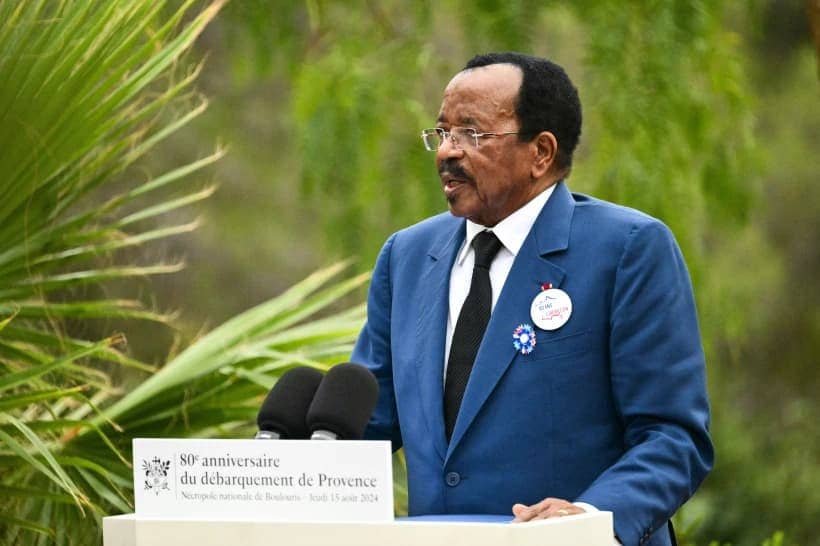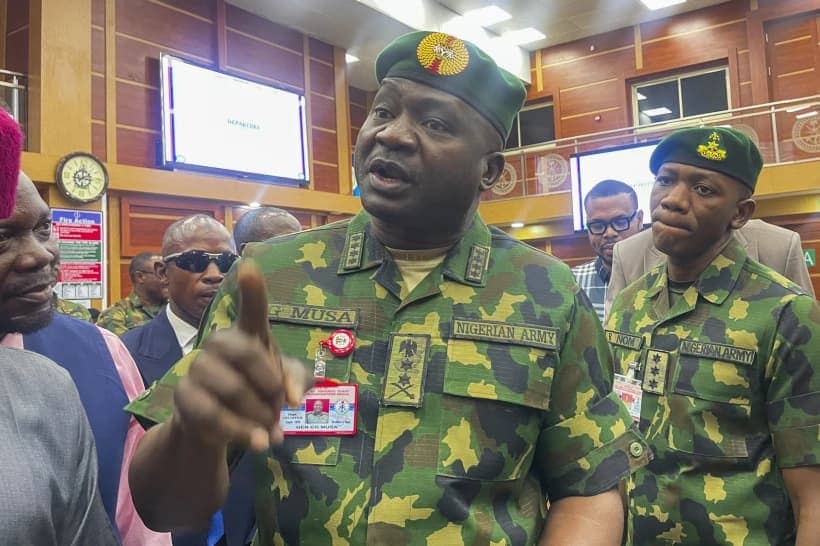WASHINGTON, D.C. — Malians have come to see the African nation’s Islamic clergy as a “fourth branch of government” in a country that has been buffeted by two coups in the past decade, said a professor from the University of Notre Dame who spent two years between the coups surveying Malians’ attitudes on war, peace and politics.
On one side of the coin, the clerics can serve as “a moralizing check on government” and as “counselors to political leaders” — championing Malian values, legitimizing government initiatives and generating social cohesion, said Jaimie Bleck, a Notre Dame associate professor of political science.
On the other side of that coin, Bleck said, Malians expressed concern that “politics could make religious leaders tainted or corrupt, their participation in politics “could lead to social division,” and some religious leaders already have too much influence.
Bleck spoke during a March 15 workshop, “Keeping Faith With the Sahel,” organized by Catholic Relief Services and co-sponsored by the Catholic Peacebuilding Network, the U.S. Conference of Catholic Bishops and the Kroc Institute for International Peace Studies at Notre Dame.
In Mali, 95 percent of the population is Muslim and 3 percent adhere to traditionalist religions, while 2 percent profess Christianity, although, Bleck said, religious leaders in each faith group are held in similar esteem.
In 2015, Bleck directed a series of 69 focus groups with 330 respondents, mostly males ages 18-45, at Malian tea-drinking clubs known in the Bamana language as “grinw.” While all were asked the same questions, none were compelled to answer every question.
One reply on legitimizing government initiatives, translated from Bamana to French and then to English, resonates today: “We have clearly seen today that if there is, for example, a vaccination campaign, governments have understood that it is necessary to go through religious leaders to convey the message in mosques because they understand that people are reluctant to participate in vaccination campaigns.”
While the grinw took in a largely male set of respondents, “it’s a losing proposition to exclude women — youth, too,” from the peacemaking process, said Bob Groelsma, the Baltimore-based team leader of a Catholic Relief Services peacebuilding team for Africa.
CRS did its own study of conflict in the Sahel region, which includes neighboring Burkina Faso and Niger, although most interviews could not be done in person because of the ongoing coronavirus pandemic.
Groelsma identified some of the results. Among them are that economics and natural resource management — but more often mismanagement — drive the conflict; women bear the brunt of the violence and long-term effects of war; and communities do not feel as if their voices are heard nationally. But traditional and religious leaders are key to solutions, he said.
Religious leaders have “a gravitas and credibility that others do not have,” Groelsma said, although some laypeople in the region believe some clerics have already become too politicized. What bothered interviewees is “the inability to access pathways to wealth,” he added.
“In the families, the women are tending the fields — the girls, too — caring for the crops, fetching water, watching the children, helping with family finances. When the men flee for safety reasons — and you don’t blame them, of course — that leaves women as the primary head of the household,” but at the same time even more vulnerable to attack, Groelsma said.
“Muslims in the Sahel and elsewhere in the world are living in one of the most challenging periods,” said A. Rashied Omar, an assistant teaching professor at the Kroc Institute, speaking from Cape Town, South Africa.
“Complex justice struggles in which many Muslim social movements have been engaged during the past century have led to the erosion of the core Islamic value of compassion, and consequently, a deficit of peace,” Omar said.
“Justice is the ‘raison d’etre’ of the establishment of religion,” not just Islam, he added. But “this obsession with justice, driven by the context essentially of war, has in turn led to an erosion and exclusion of the central concept of justice,” which is compassion, he added, noting that the appellation of “the most compassionate, the dispense of grace” is “perhaps the most important name of God” in Islam.
Omar said the Muslim definition of peace is similar to the concept of “positive peace” first outlined by Norwegian peace scholar Johan Galtuns: “The absence of structural violence,” and “addressing and transforming the underlying conditions of structural violence.”
He added there is a Catholic analogue to that concept famously uttered by St. Paul VI: “If you want peace, work for justice.”














